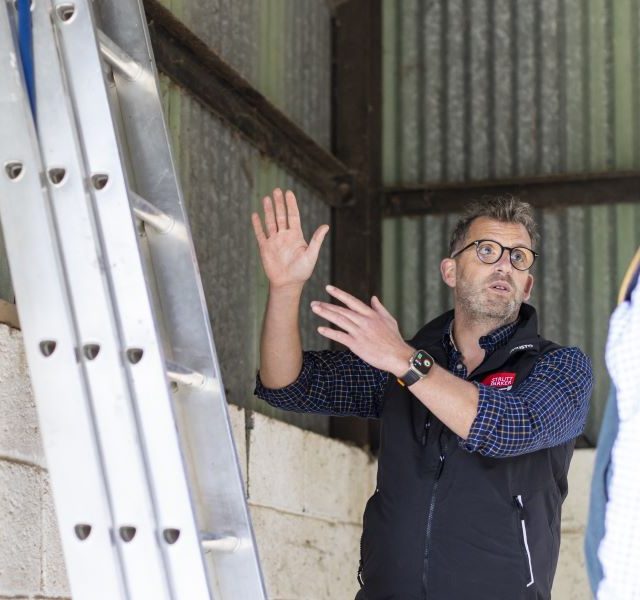Land Business Update | Week Commencing 18th March 2024
Land Reform in Scotland
New wide ranging land reform bill introduced
The new bill could have significant implications for land management, communities and land sales. We will produce a full briefing note in due course but the headlines are:
- Land holdings over 3,000 hectares will be legally required to show how their land use contributes to key public policy priorities. They will also be required to consider reasonable requests from community bodies to lease land.
- Creation of a Land and Communities Commissioner.
- Introduction of a new model lease for letting land to meet private and public objectives.
- Where holdings of more than 1,000ha are put up for sale, community bodies must be given prior notification to give them the option to buy. Ministers will also have the right to decide whether the land should be lotted and, if not all lots are sold, the Scottish Government could potentially buy unsold lots.
- Many technical changes on agricultural tenancies, including on a tenant’s right to buy land, consent for a tenant’s improvements, grounds to object to a diversification, good husbandry and more.
Farming
Food security and fertiliser – £1.4 bn increase in fertiliser bill since Russian invasion of Ukraine
Before the invasion, British farmers used to spend around £470m a year on fertiliser, according to the Energy and Climate Intelligence Unit think tank. In 2022, the year of the invasion, fertiliser prices spiked to £800-1,000 per tonne which pushed total spent up to around £1.42bn. High prices continued and spending was around £964m in 2023, meaning that an additional £1.4bn was spent over those two years. The ECIU calls this a ‘gas price penalty’ on fertiliser, and the bad news is that it will continue into 2024. The think tank says that green farming schemes that incentivise soil health (through legume fallows, cover crops and herbal leys), and so ‘sustainable crop nutrition’, should help to reduce the UK’s need for and dependence on foreign fertiliser imports – and increase food security (see below).
Food security and the role of insects
Food security is a complex subject. Simply increasing (or maintaining) the area of land used for crops and livestock is unlikely to improve it. A more balanced approach that includes reducing low productivity, increasing soil health (see above), increasing resilience to climate change and reducing the decline of insects that support food production will help. A report from the House of Commons’ Science, Innovation and Technology Committee calls for effective and sustainable crop protection strategies to be demonstrated at a commercial scale, and for better support for the development of pesticide alternatives. It noted that the National Action Plan for Sustainable Pesticide Use, a policy that aimed to address knowledge gaps and encourage pesticide use reductions, has been delayed for six years.
Environment
Provisional agreement reached on a new, voluntary EU certification scheme for land-based carbon removals
The scheme will include a number of categories:
- Permanent carbon removal, which means “storing atmospheric or biogenic carbon for several centuries’.
- Temporary carbon storage in long-lasting products, such as wood-based construction materials, for at least 35 years.
- Temporary carbon storage, including from carbon farming (e.g., cutting emissions from digestion by animals and manure management), restoring forests and seagrass meadows. NB Storage must last at least five years and may have to also generate a biodiversity co-benefit.
- Soil emission reductions, including wetland management, no tilling and cover crop practices, and reduced use of fertiliser combined with soil management practices. NB This was added to the original draft. NB Storage must last at least five years.
It is not clear when the scheme will be introduced, and it will be developed over the next few years by expert groups.
Forestry
England Woodland Creation Offer (EWCO) payment rates increased immediately
There are some new payments and a number of existing payments have been significantly increased in order to try to meet tree planting targets:
- NEW payment for applications on low sensitivity land (£1,100/hectare).
- NEW Nature Recovery Premium option for planting next to ancient woodland (£3,300/hectare).
- INCREASED existing additional contributions (payments for flood risk management £1,000/hectare, up 100%; payments for recreational access £3,700, up 68%).
- INCREASED existing annual maintenance payments (£400/hectare/year, up 14%, for 15 years).
The maximum rate available from additional contributions is now £11,600/hectare, a 45% increase; if stacked with the new Low Sensitivity Land Payment, the payment increases to £12,700. The changes in payments will be automatically applied to equivalent options under Countryside Stewardship. Please contact Julian Williams for more details.
Diverse forests of slow-growing trees may be more resilient to storms
Monocultures of fast-growing species such as pine, although valuable from an economic point of view, are more susceptible to storm damage, according to new research from the French National Research Institute for Agriculture, Food and Environment (INRAE). It is based on computer modelling of 90,000 real forest plots across Europe. The researchers now want to test their findings with fieldwork. A professor from Reading University, who was not involved in the research, said that the findings were what he expected as mixed forests are better able to ride out the impact of adverse factors, including wind storms. Other research found that diverse woodlands have other benefits including more resistance to pests and diseases.
Change to felling licences in Wales
Natural Resources Wales has published guidance on its new powers, under the Forestry Act, to amend or revoke felling licences that may negatively impacted the environment.
Property and rural economy
Spring Budget – five key points that affect rural property
Although there may not have appeared to be many rural property headlines, there are a few changes that could have significant, positive and negative effects:
- Abolishing the Furnished holiday lettings tax regime. The government hopes this will release more property to the long-term letting market or for sale. The change will bring the tax regime into line with taxes on other types of letting. This may increase tax revenues by £600m over the next five years.
- Planned cuts in Defra’s spending of 12.5% or £0.6m between 2023/24 and 2024/25. There are even bigger cuts to the Levelling Up, Housing and Communities (DLUHC) budget.
- Grid connection reforms. The Budget built on last year’s announcement to reform the planning system to increase the delivery of energy infrastructure, including removing ‘zombie projects’ from the grid connection queue. The change was welcomed by the Environmental Audit Committee.
- Extending agricultural property relief from inheritance tax to land managed under an environmental agreement. This is positive and will remove a barrier to putting some land into environmental land uses. Separately, APR will not be restricted on tenancies under eight years, which is also positive news.
- Multiple Dwellings Relief. This relief from capital gains tax will be abolished from 1st June 2024, so there is a sweet spot for sellers to exchange and complete on sales after 5th April and before 1st June 2024. This will raise £1.3bn over five years.
Government minister accuses ‘vested interests’ of ‘funding campaigns of misinformation’ about heat pumps
The energy minister Lord Callanan said some organisations wanted to maintain current supplies of gas boilers. Heat pumps are seen as one of the key technologies for most homes in Britain. A record 35,000 were installed in the UK in 2023 but this is well below the government’s target of 600,000 a year by 2028. They are more expensive to install than gas or oil boilers (typically £6,500 (after grants) compared with £2-3,000). A report for the MCS, the body which certifies the technology, found that 80% of people were either satisfied or very satisfied with their heat pump, which is higher than for gas boilers.
Separately, the MCS reported that over 30,000 solar panels, heat pumps and other renewable energy technologies were installed in Scotland in 2023, up 18% on the previous record set in 2022. Nearly one in ten Scottish households now has a renewable energy technology in their homes.
Separately again, more than a dozen organisations, including heat pump makers and energy suppliers, have written to the government to urge it not to scrap the Clean Heat Market Mechanism, which requires that 4% of heating systems sold in the UK this year are heat pumps (rising to 6% next year). They say that the target requires the entire boiler manufacturing industry to increase heat pump sales by about 5,000 in 2024, which is equivalent to the number of gas boiler sales in one day.
Land use framework now expected before the summer recess of Parliament
In a House of Lords debate on 12th March 2024, the government confirmed that the framework will be published before the summer recess. It will be based on the principle of multifunctional land use, so land sharing (with land delivering multiple benefits) rather than land sparing (which is allocating some land to food production and other land to environmental protection). It is not intended to be prescriptive and the government says it will provide land managers with guidance so they can make effective decisions based on local knowledge and local strategies. The government intends to engage widely on the framework but not consult formally. No firm decision has made yet on how the framework might be updated over time.






